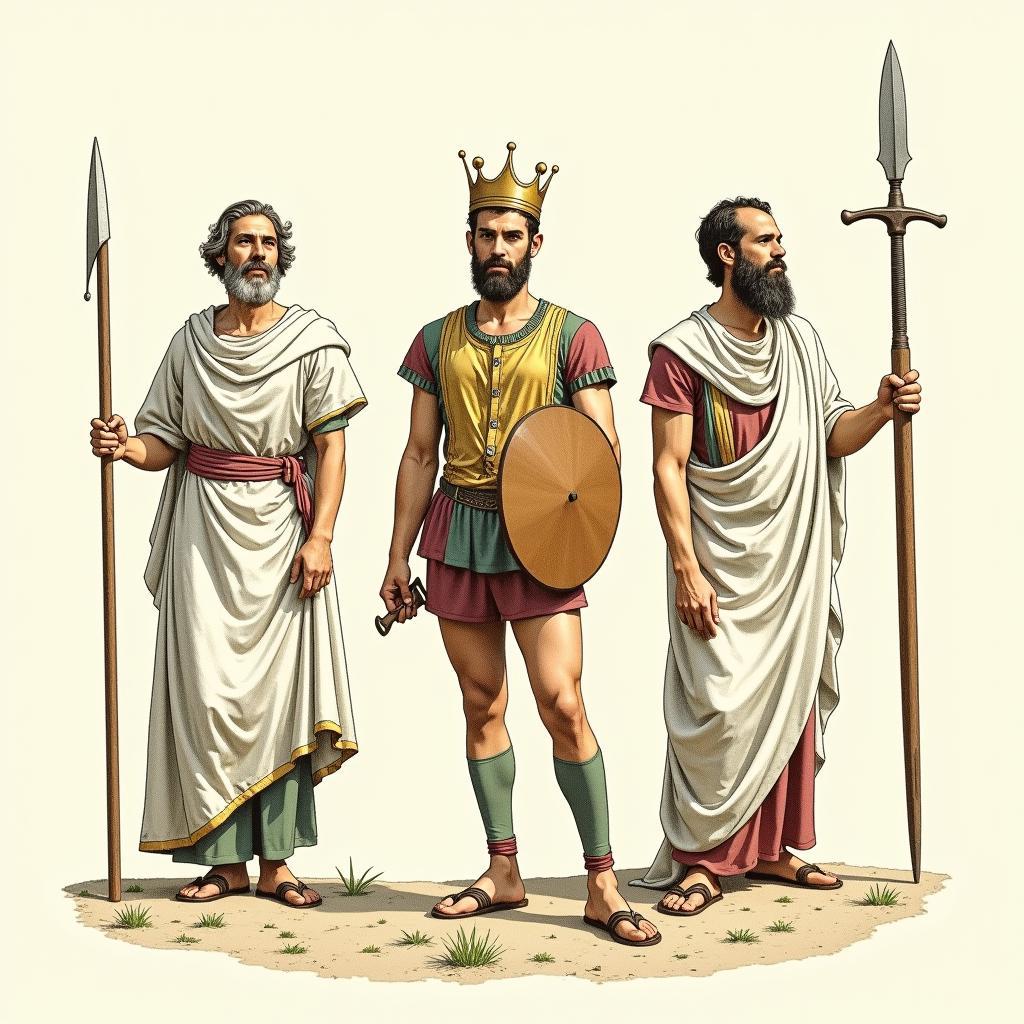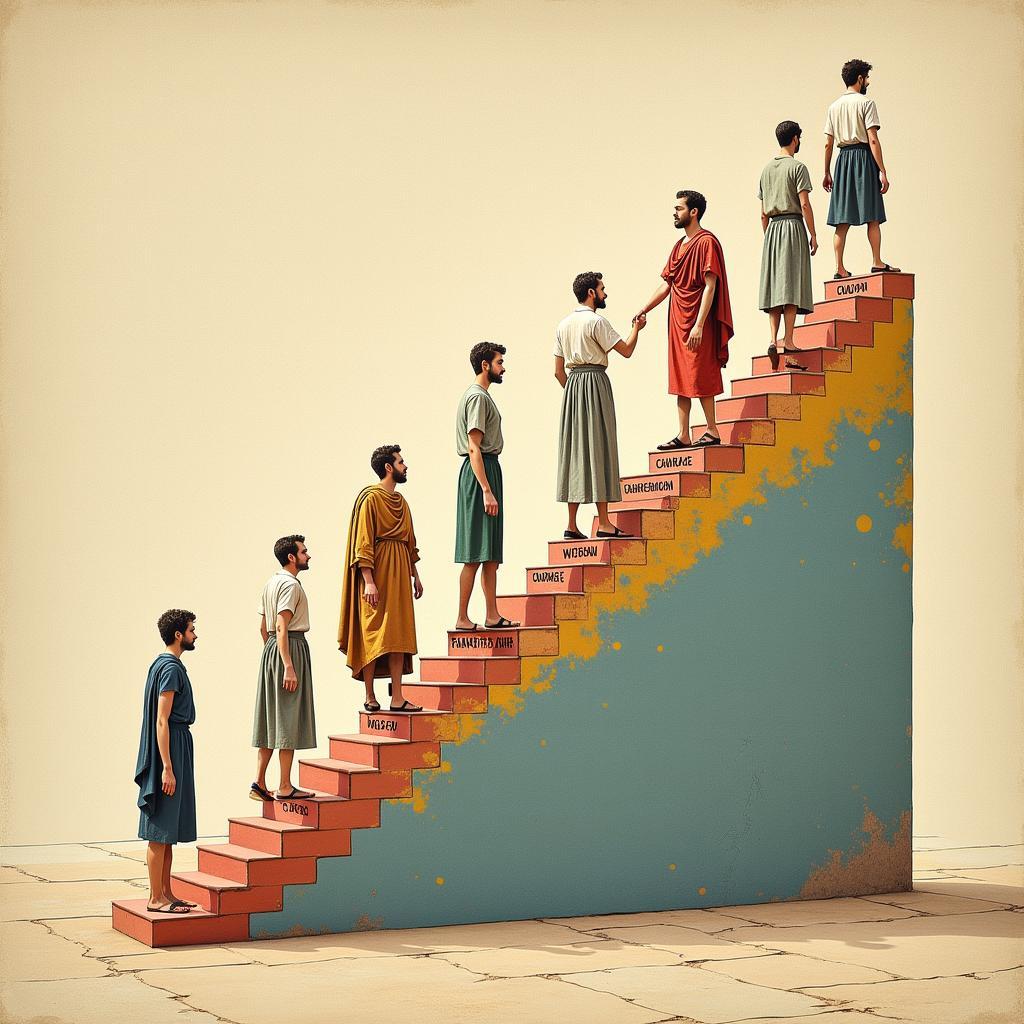Plato’s vision of the ideal society, a concept explored extensively in his work The Republic, captivated thinkers for centuries. This philosophical masterpiece delves into the nature of justice, the ideal state, and the path to achieving a harmonious society. We will explore the core tenets of Plato’s utopian vision and its implications for both individual and collective well-being.
Plato believed that the ideal society, much like the human soul, is comprised of three distinct parts: the rulers, the auxiliaries (soldiers), and the producers (craftsmen, farmers, etc.). Each class corresponds to a specific virtue and function within the larger social organism. ideal society
The rulers, representing reason and wisdom, are responsible for governing the state. Their wisdom allows them to make just and rational decisions for the benefit of all. The auxiliaries embody courage and spirit, defending the state from external threats and maintaining internal order. Finally, the producers, guided by temperance and moderation, provide for the material needs of society.
 Plato's Three Classes
Plato's Three Classes
What were the characteristics of Plato’s ideal society? Justice, according to Plato, is achieved when each class performs its designated function harmoniously, without overstepping its boundaries. This principle of specialization ensures efficiency and stability, preventing internal conflict and promoting the common good.
Plato envisioned a society based on meritocracy, where individuals are assigned to their respective classes based on their natural aptitudes and abilities. Education plays a crucial role in identifying and nurturing these talents, ensuring that each individual finds their rightful place in the social order. plato's society
 Plato's Meritocratic Society
Plato's Meritocratic Society
Plato’s Ideal Society: A Hierarchical Structure
How did Plato’s hierarchical structure contribute to his vision? Plato’s hierarchical structure, while seemingly rigid, was intended to promote social harmony and prevent tyranny. By placing the most rational and virtuous individuals at the helm of the state, he aimed to minimize the potential for corruption and ensure that decisions were made based on wisdom and justice.
The Role of Education in Plato’s Ideal Society
What was the role of education? Education, in Plato’s ideal society, was not merely about acquiring knowledge but about cultivating virtue and shaping character. Through rigorous training in philosophy, mathematics, and physical education, individuals were prepared to fulfill their roles and contribute to the common good. rules of a utopian society
“Education,” according to Dr. Eleanor Vance, a renowned philosopher, “is the cornerstone of Plato’s ideal society. It is the means by which individuals are transformed from base metal into refined gold, capable of contributing to the greater good.”
Critiques and Legacy of Plato’s Utopia
Plato’s utopian vision, while inspiring, has not been without its critics. Some argue that his emphasis on hierarchy and social stratification could lead to oppression and inequality. Others question the feasibility of achieving such a perfect society in the real world.
Despite these criticisms, Plato’s ideas continue to resonate with contemporary thinkers. His emphasis on justice, virtue, and the importance of education remain relevant in our ongoing quest for a more just and equitable world. utopian society movies
Professor James Miller, a scholar of ancient Greek philosophy, notes, “Plato’s vision, though idealistic, provides a valuable framework for examining the fundamental principles of justice and the challenges of creating a harmonious society.” His insights continue to challenge us to reflect on the nature of the good life and the role of the individual in the pursuit of a better future. private society zerella skies
In conclusion, what was Plato’s vision of the ideal society? It was a vision grounded in justice, wisdom, and the pursuit of the common good. While his utopian model may be unattainable in its purest form, it continues to offer valuable insights into the enduring challenges of building a better world.
FAQ
-
What are the three classes in Plato’s ideal society?
-
What is the role of education in Plato’s Republic?
-
How does Plato define justice in his ideal society?
-
What are some critiques of Plato’s utopia?
-
How does Plato’s concept of the ideal society relate to the human soul?
-
What is the significance of The Republic in understanding Plato’s philosophy?
-
How has Plato’s vision influenced later thinkers and political theories?
Need support? Contact us 24/7: Phone: 02043854663, Email: [email protected], or visit us at Zone 34, Bac Giang, 260000, Vietnam.